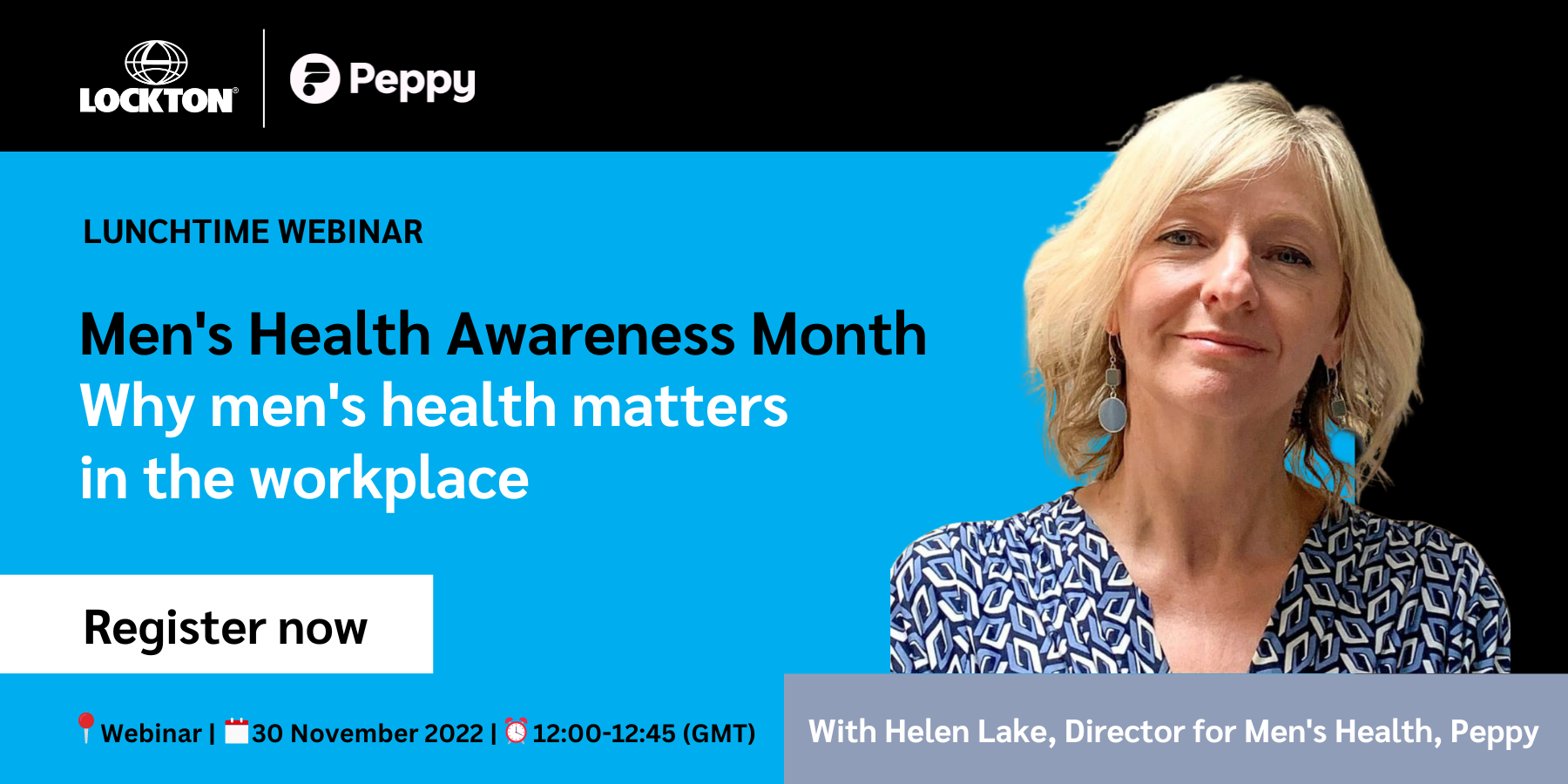Men are more likely to delay appointments, are less likely to talk about their health with their employer and are more likely to die before reaching retirement age. Businesses can and should help their male staff take a more active role in their wellbeing.
Every November, a spotlight shines on the issue of men’s health. Most of us are now well aware of Movember, a global movement where large swathes of the male population grow moustaches to highlight some of the most pressing medical issues affecting their gender. In particular prostate and testicular cancer, and male suicide.
However, we need to create a conversation around male attitudes to physical and mental wellbeing all year round. Men are far more likely to let their health slide than their female counterparts.
A 2021 survey by Bupa (opens a new window) found that a quarter of men in the UK are delaying seeking help for health concerns, with one-in-ten deliberately putting off or missing a cancer screening.
Men also rarely seek help from their employer, and often turn up to work when they should be taking time off. Two-fifths (39%) of companies surveyed (opens a new window) by employee wellbeing platform Peppy say their male staff wait for a health problem to become severe before they seek help from human resources (HR); while 26% of organisations reported ‘presenteeism’ - working while either physically or mentally unwell - as a problem for men.
This has serious consequences. One-in-five men in the UK will die before they reach the state retirement age (opens a new window).
Tips for encouraging better health in your male staff
Employers can play a vital role in addressing this phenomenon. It's important to strike a balance between being too prescriptive, while also stressing the importance of a holistic attitude towards wellbeing. Here are some tips:
Nominate a male ‘health and wellbeing champion’ - Having a designated point of contact within the organisation, where men can have an informal discussion about their health can make a tangible difference. They do not need to be medically trained, but having an empathetic personality is a must. The Men’s Health Forum has a learning course (opens a new window) which teaches your company’s champion the basics of men’s health and gives them the tools to be the first step in your employee’s journey in seeking professional help.
Encourage senior employees to share their experience - Storytelling is a powerful tool in trying to change behaviours. This is particularly true for mental health. Hearing how others have struggled, can spur those suffering into taking their own actions. It is even more powerful when it comes from the very top of the organisation; if a member of the C-suite can open up it shows a path to success for those doubting themselves and fosters a company culture where openness around wellbeing is valued and encouraged.
Use relevant awareness days to highlight men’s health issues: As we touched on above, Movember has had a profound effect on men’s health. Earlier this month, the NHS announced a 25% year-on-year increase in the number of men receiving prostate cancer treatment (opens a new window). While the commitment to this issue needs to be year-round, using the awareness dates is a powerful tool to change behaviours. HR teams should also note Men’s Health Week (normally the second week in June) and International Men’s Day (19th November) as opportunities to spark conversation and build awareness.
Signpost trusted sources of information on male health: There is a bevy of information online that can help men spot the signs of ill health. This can either be through trusted external sources of information such as the NHS website, or internal resources including employee assistance programmes provided by your employee wellness platform.
Give employees time to attend medical appointments: Bupa found that 28% of men skip their cancer screenings because it doesn’t fit with their working commitments. Employers should become more flexible, allowing all staff to take appointments during work hours.
Update Diversity & Equality policies: Significant work has been done to update women’s health strategy, both at organisational and governmental levels. The UK officially launched its Women’s Health Strategy last year, and companies rightly make provisions for female health including cervical screenings, pregnancy, and menstrual health. The same scrutiny and support need to be applied to effective men’s health provisions, with a particular focus on support for prostate and testicular cancer, as well as mental health.
Movember is an opportunity for HR teams to start the conversation with their male staff and address any gaps they may have in company policies. It could make all the difference in giving men the push they need to access medical care.
Interested in learning more about how businesses can support men’s health in the workplace? Sign up to our webinar with Peppy, the digital health app, on the 30 November, 12:00-12:45pm (opens a new window).

For further information, please contact:
Oliver Wheatley, Senior Benefits Consultant
Lockton People Solutions
T: +44 (0) 78 1845 8285

